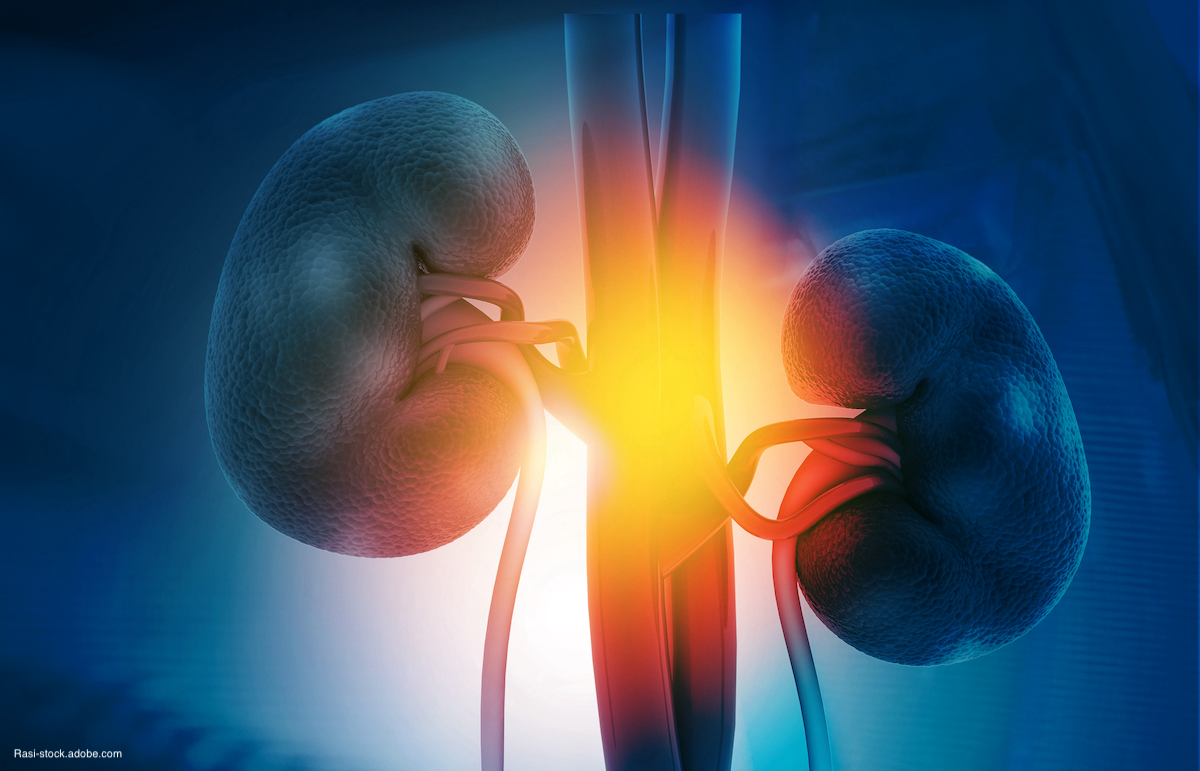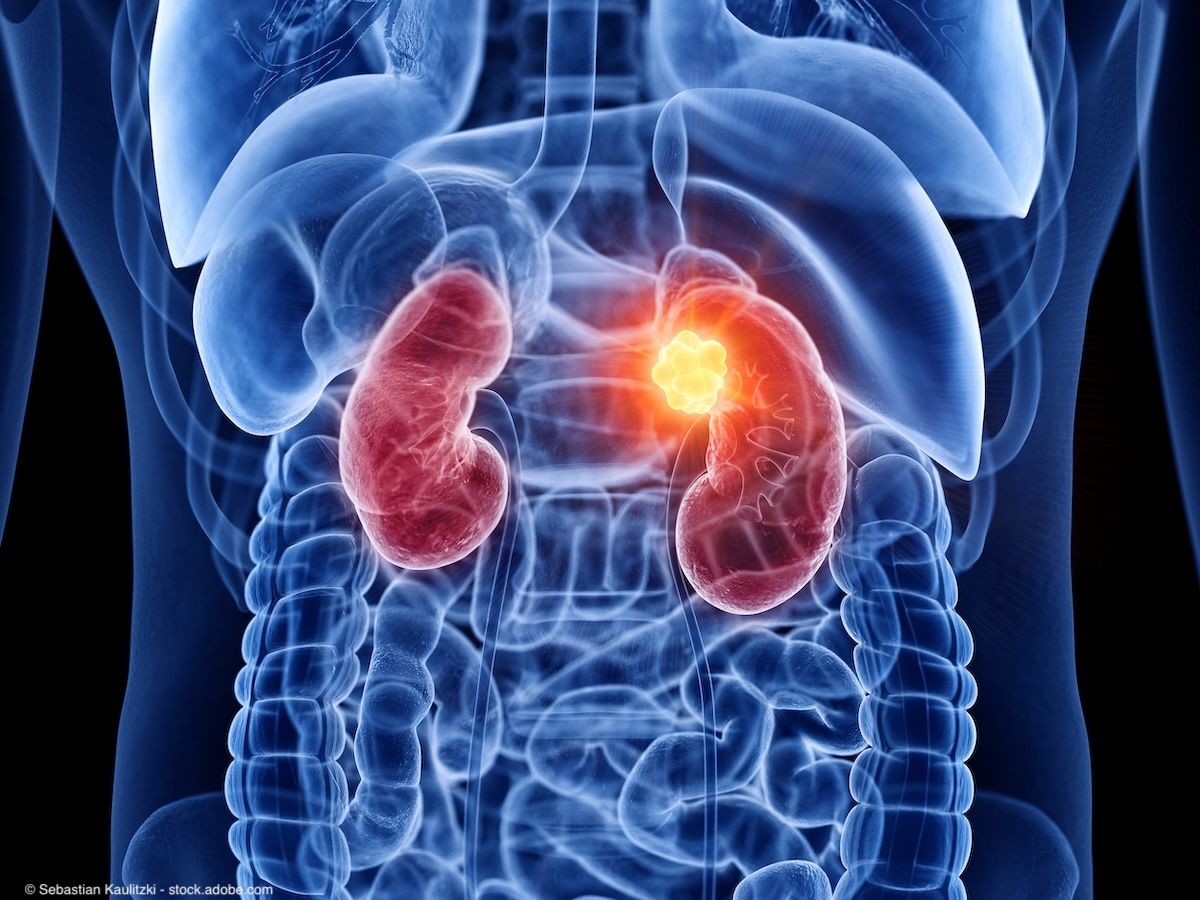News
Article
Belzutifan significantly delays disease progression in phase 3 kidney cancer trial
Author(s):
Patients in the phase 3 LITESPARK-005 trial were randomized to belzutifan or everolimus after receiving both a PD-1/L1 inhibitor and a VEGF-TKI for their renal cell carcinoma.
Treatment with the HIF-2α inhibitor belzutifan (Welireg) significantly reduced the risk of disease progression or death vs everolimus (Afinitor) in patients with advanced renal cell carcinoma (RCC) who progressed following treatment with a PD-1/L1 inhibitor and a VEGF-TKI, according to findings from the phase 3 LITESPARK-005 trial (NCT04195750).1
The study authors expect results from the trial to be presented at an upcoming medical conference and shared with regulatory authorities.

Merck (MSD), the developer of belzutifan, reported in a press release that the LITESPARK-005 trial met the study’s co-primary end point of progression-free survival (PFS), as determined at a pre-specified interim analysis conducted by an independent Data Monitoring Committee. Regarding the other co-primary end point of overall survival (OS), the company reported that there was a trend toward improvement in OS, although the difference between belzutifan and everolimus did not reach statistical significance.1
Secondary end points for LITESPARK-005 include objective response rate (ORR), duration of response, and safety/tolerability. Merck reported that belzutifan demonstrated a significant improvement in ORR compared with everolimus. Regarding safety, there were no new safety signals with either treatment compared with previously reported safety outcomes with the treatments.1
The study authors expect results from the trial to be presented at an upcoming medical conference and shared with regulatory authorities.
“Patients with advanced RCC face low survival rates, and for those whose cancer progresses following PD-1/L1 and VEGF-TKI therapies, there is a need for new treatment options that can reduce their risk of disease progression or death. This is the first Phase 3 trial to show positive results in advanced RCC following these therapies and the first new mechanism to demonstrate potential in advanced RCC in recent years. We look forward to discussing these results with health authorities,” said Marjorie Green, MD, in the news release.1 Green is the senior vice president and head of late-stage oncology in global clinical development at Merck Research Laboratories.
In total, the randomized, open-label phase 3 trial enrolled 746 patients with RCC. Participants were randomly assigned 1:1 to receive 120 mg of belzutifan orally once daily or 10 mg of everolimus orally once daily.
Patients were included in the study if they had received no more than 3 prior systemic treatment regimens for RCC; had adequate organ function; if male, were abstinent from heterosexual intercourse or agreed to use contraception during the study period; and, if female, were not pregnant, breastfeeding, or either did not have the potential to become pregnant or agreed to wear contraceptives during the study period.
Currently, belzutifan is approved in the United States for patients with von Hippel-Lindau disease who require therapy for associated RCC, central nervous system hemangioblastomas, or pancreatic neuroendocrine tumors that do not require immediate surgery.
In LITESPARK-004 (NCT03401788), a previous study of belzutifan in VHL that supported the treatment’s FDA approval, serious adverse reactions were experienced by 15% of patients; these adverse reactions included anemia, hypoxia, anaphylaxis reaction, retinal detachment, and central retinal vein occlusion. In total, 3.3% of patients in the trial discontinued treatment with belzutifan due to the adverse events of dizziness and opioid overdose.2
References
1. Merck announces WELIRIG (belzutifan) phase 3 LITESPARK-005 trial met primary endpoint of progression-free survival in certain previously treated patients with advanced renal cell carcinoma. News release. Merck. Published online and accessed August 18, 2023. https://www.businesswire.com/news/home/20230818906049/en/Merck-Announces-WELIREG%C2%AE-belzutifan-Phase-3-LITESPARK-005-Trial-Met-Primary-Endpoint-of-Progression-Free-Survival-in-Certain-Previously-Treated-Patients-With-Advanced-Renal-Cell-Carcinoma
2. WELIREG (belzutifan) tablets, for oral use: Highlights of prescribing information. Last revised May 2022. Accessed August 18, 2023. https://www.merck.com/product/usa/pi_circulars/w/welireg/welireg_pi.pdf
Newsletter
Stay current with the latest urology news and practice-changing insights — sign up now for the essential updates every urologist needs.









